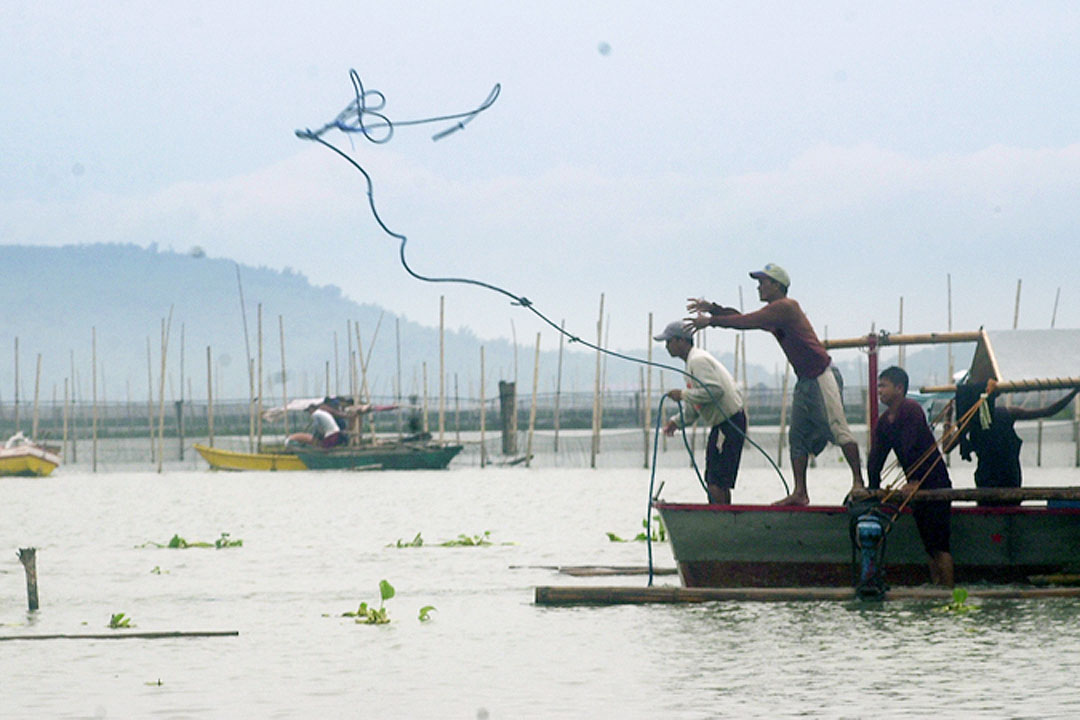Fishing industry warns gov’t not to use storm as pretext for imports

THE AQUACULTURE industry said the government should not us the recent storm as a pretext to authorize fish imports, saying that the domestic supply of fish is stable despite the damage inflicted by Tropical Storm Paeng (international name: Nalgae).
Mario G. Balazon, Taal Lake Aquaculture Alliance, Inc. director, said in a statement Wednesday that the fishing and aquaculture industries can meet domestic demand for fish.
“We want the government to know that our industry remains resilient regardless of the strong winds, rain, and flooding, despite Typhoon Paeng affecting many fish producers, it did not hinder our production. We can still supply the whole country without importing fish,” Mr. Balazon said.
“Don’t use this calamity as a reason to justify imports. Support our producers first before turning to other countries for fish,” he added.
According to Mr. Balazon, the storm inflicted P22 million worth of losses for the aquaculture industry in Talisay, Batangas.
“Approximately 200 tons of fish escaped the cages. In Calauan, Laguna, the supply of fingerlings was washed out. But we are confident that in three months we will be able to re-stock again and rest assured that this will not affect the supply of tilapia,” Mr. Balazon said.
Norberto O. Chingcuanco, Tugon Kabuhayan co-convenor, said a fish shortage is unlikely.
“When fish from aquaculture cages escape, municipal fishermen catch those fish. It doesn’t disappear. Our fishing industry is robust and we can always fill the demand. There is no need to import,” Mr. Chingcuanco said.
According to Philippine Tilapia Association President Jon G. Juico, the price of bangus and tilapia dropped last year because of imports.
“Our producers were forced to sell their fish for only P60 to P70 per kilogram, while the cost of production per fish was P90. It devastated the industry when the market was inundated by imports,” Mr. Juico said.
“There is not much damage here in Pampanga. We are always prepared here in Minalin since we don’t use nets. We use dikes, and we are affected more by dams releasing water, not by typhoons,” he added.
Tugon Kabuhayan Convenor Asis G. Perez said the industry knows how to adapt to typhoons.
“While we are one in the call for immediate government action in providing the necessary support for the fisheries industry, we are also expressing that Filipinos — no matter the predicament — are inherently fighters. The effect of Typhoon Paeng is just one of the many bouts that can be surmounted with our own hands,” Mr. Perez said.
The Department of Agriculture (DA) estimates that as of 5 pm, Wednesday, agricultural damage due to the storm totaled P2.74 billion, affecting 74,944 farmers and fisherfolk, with lost production at 111,831 metric tons (MT) and affected farmland 82,380 hectares.
Fisheries damage was estimated at P201.64 million. — Revin Mikhael D. Ochave



